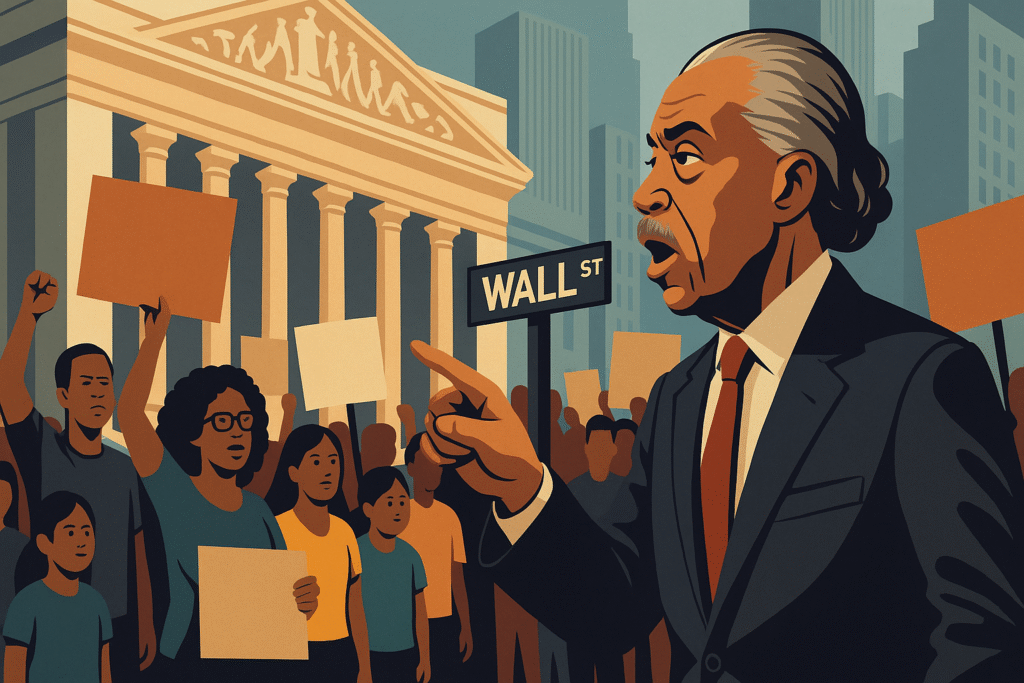Lower Manhattan witnessed a powerful demonstration today as civil rights leader Rev. Al Sharpton led a march through Wall Street. The rally was held on the anniversary of the 1963 March on Washington, aiming to highlight the unfinished fight for economic justice and equality in the United States.
Honoring the Legacy of 1963
The march deliberately evoked memories of Martin Luther King Jr.’s historic “I Have a Dream” speech, delivered 62 years ago in Washington, D.C. Then, as now, the demands centered on racial justice, jobs, and freedom.
Rev. Sharpton addressed the crowd gathered near the New York Stock Exchange, reminding them that the economic vision King called for remains unfulfilled.
“Dr. King marched for dignity and opportunity. We march today because America’s economic promise is still denied to too many. Wall Street has prospered, while working families and marginalized communities continue to be left behind,” he said.
Key Demands of the Demonstration
The protest emphasized the ongoing economic and social disparities across New York City and the nation. Marchers carried signs and chanted for reforms, including:
-
Living wages for all workers.
-
Affordable housing and rent protections.
-
Equal access to healthcare and education.
-
Corporate accountability for systemic discrimination.
Participants also criticized the recent rollback of diversity, equity, and inclusion (DEI) initiatives, calling on both corporations and policymakers to invest in historically underserved communities.
A Broad Coalition of Voices
The demonstration attracted thousands, including union members, students, faith leaders, and grassroots activists. The symbolism of marching through the financial heart of the United States resonated deeply with participants.
“I’m here because my parents marched in the 1960s,” said Maria Gonzalez, a Bronx schoolteacher who attended with her daughter. “They fought for my rights. Now I march so my daughter won’t face the same injustices.”
Sharpton’s Challenge to Leaders
In his speech, Rev. Sharpton directed strong criticism at both corporate leaders and government officials.
“If banks can be bailed out in times of crisis, working families crushed by rent, debt, and poverty wages deserve the same commitment,” he declared.
He urged lawmakers to view economic justice as an extension of civil rights, demanding expanded social protections, stronger unions, and stricter enforcement of anti-discrimination laws.
Moving Forward
Organizers emphasized that this march was not an isolated event but part of a broader national movement. Further demonstrations are planned in both New York and Washington in the coming months to maintain pressure on decision-makers.
As the crowd dispersed, Sharpton left participants with a call to continue the struggle:
“The dream is not yet realized. Our duty is to ensure it doesn’t turn into a nightmare for generations to come.”
This march served as both a tribute to history and a renewed demand for justice, underscoring that the fight for equality, jobs, and dignity remains central to America’s unfinished journey.



